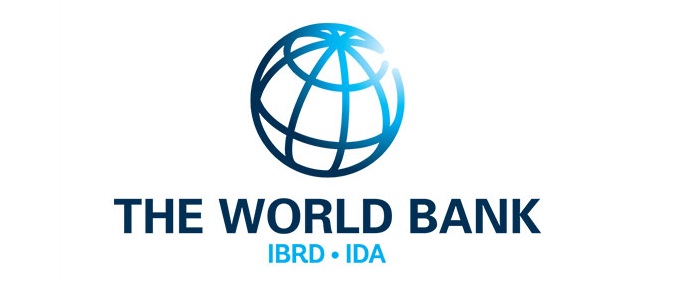Finance
World Bank Group Launches Climate Business Innovation Network

he World Bank Group and partners today launched a network that brings together more than 30 foundations, donors, venture funds, and others to help local businesses in 12 countries develop clean technology and advance climate action.
The Climate Business Innovation Network will support developing countries in their transition to clean energy and other climate-smart paths by building local capacity and linking small businesses to global sources of technology, finance, and expertise. Diverse partners, including foundations, donors, businesses, investors, venture funds, universities, international organizations, and government agencies will provide advisory services, partnership and funding to small and growing businesses in developing countries, with a focus on Africa. As the network expands, more organizations will join to enhance the service offerings.
“The World Bank Group is happy to be convening organizations for maximum impact through the new Climate Business Innovation Network, to help accelerate small and growing businesses’ capacity,” said Anabel Gonzalez, the World Bank Group’s senior director for Trade & Competitiveness. “The network will deliver concrete solutions to climate problems, while creating jobs and value in our partner countries and helping them meet their Paris commitments.”
With countries gearing up to implement the actions in the Nationally Determined Contributions, it is essential they deploy the latest innovations available. The network will allow climate technology businesses in developing countries to access the expertise and know-how needed to adapt and adopt innovative business models that have been proven in other countries.
Specifically, the network will:
- Spread models to enable climate innovation: Countries have implemented a range of strategies to catalyze innovation locally and globally to create new technologies for climate mitigation and adaptation. The network will be the premier vehicle to gather experiences and share them with participating countries and stakeholders.
- Diffuse disruptive green business models: The innovation we are seeing in every country around the world in climate sectors is creating many new business models which not only address climate challenges but do so in a commercial manner that creates jobs and investments. The network will gather, collect, and share these successes, linking private sector firms and government entities across boundaries to facilitate this transfer.
- Crowd-in global sources of finance for climate tech innovation: Both the public and private sector have shown keen interest to invest in novel climate change solutions with developing country applications. There are many barriers to such investment, however, including lack of knowledge, high transaction costs, and challenges to align different investor interests. The network will gather these sources of funding for climate innovation to channel them effectively among a pipeline of promising options.
The network also will sponsor networking events and pitch competitions, and share local and global research and resources through a virtual platform.
The network builds on the World Bank Group’s Climate Technology Program, a $70 million initiative that catalyzes the growth of climate technology sectors in developing countries through small and growing businesses. It has launched seven Climate Innovation Centers supporting more than 300 firms and produces cutting-edge knowledge with support from the U.K. Department for International Development and other donors. To date, the program has raised more than $9 million in private financing and reduced or avoided more than 75,000 tons of carbon dioxide emissions, as well as creating more than 700 jobs.
For example, GreenCape in South Africa with World Bank Group support is helping match international companies that have proven models in green sectors with local businesses. In Kenya, the World Bank Group and Carbon Trust have partnered with the Kenya Climate Innovation Center to design and launch an early stage fund for companies seeking investments from $100,000 to $1 million.
Over the next decade, investments in clean technology sectors in developing countries are expected to top $6.4 trillion globally, with $1.6 trillion of that market accessible to small and medium enterprises. The network can help leverage the available financing for climate solutions in local markets. In doing so, it can both diminish the stresses of climate change on vulnerable populations while improving their livelihoods with the benefits of newly introduced climate solutions.
Initial network partners include:
Global
Australia’s Department of Foreign Affairs and Trade
Carbon Trust
Convergence
Denmark’s Ministry of Foreign Affairs
Global Impact Investing Network
IC2 Institute, The University of Texas at Austin
Intellecap
Italian Ministry of Foreign Affairs
Los Angeles Cleantech Incubator
The Netherlands’ Ministry of Foreign Affairs
Norway’s Ministry of Foreign Affairs
1776
U.K. Department for International Development
Local/Regional
Embrapa (Brazilian Agricultural Research Corporation)
Egyptian National Cleaner Production Center
Ethiopia Climate Innovation Center
Ghana Climate Innovation Center
Caribbean Climate Innovation Center (Jamaica)
Scientific Research Council (Jamaica)
Kenya Climate Innovation Center
Renewable Energies Industries Association of Malawi
SME Development Institute (Malawi)
Banque Nationale de Mauritanie
Jeune Chambre de Commerce (Mauritania)
Union Nationale du Patronat Mauritanien
Moroccan Agency for Sustainable Energy
Morocco Climate Innovation Center
Bertha Center for Social Entrepreneurship (South Africa)
GreenCape (South Africa)
South Africa Climate Innovation Center
Caribbean Industrial Research Institute (Trinidad & Tobago)
National Agency for Technology Entrepreneurship and Commercialization Development (Vietnam)
Vietnam Climate Innovation Center
About the World Bank Group’s Climate Technology Program
The World Bank Group’s Climate Technology Program (CTP) catalyzes the growth of climate technology sectors in developing countries through small and growing businesses. CTP achieves this by strengthening local institutions that support businesses, by deploying new support models with those institutions, and by facilitating flows of global knowledge, insights, and resources from global support organizations and financiers to local businesses. To achieve this, CTP partners with a variety of local institutions. The program has established Climate Innovation Centers in seven countries and is launching two venture funds. CTP is supported by the U.K.’s Department for International Development, Australia’s Department of Foreign Affairs and Trade (Australian Aid), Denmark’s Ministry of Foreign Affairs (DANIDA), Norway’s Ministry of Foreign Affairs, and the Netherlands’ Ministry of Foreign Affairs.



















































